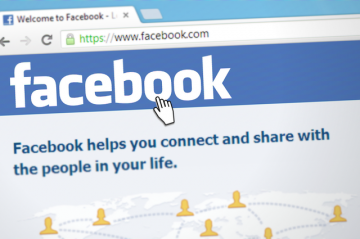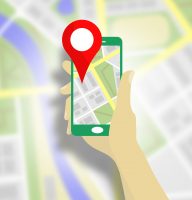Do the benefits of having a Facebook account outweigh the risks?

Image Social Network Facebook Network Connection_By_Simon Used Under CC0 1.0
In December, Facebook hit the headlines once again for a privacy scandal. This time, they revealed that a Photo API bug gave some third-party apps too much access to the photos of up to 6.8 million users. According to their statement, developers might have had access to photos shared on Marketplace or Facebook Stories, and even to pictures uploaded but not posted. As TechCrunch reports, this failure “will further weaken confidence that Facebook is a responsible steward for our private data.”
The year was particularly tough for the tech giant. They went through multiple privacy scandals and business crisis, and subsequently lost a lot of trust. In an interview to CBC, the privacy advocate and Facebook critic Mark Weinstein said that the company has “everything” when it comes from information about the users. And they even have information about non-Facebook users, which is collected through friends who use the social media.
It isn’t a surprise that both the New York Times and CNN published articles recently explaining how we can delete our Facebook profiles. Both of them highlight that the first thing to do is to assess any damages that this decision might cost, since many other services are integrated with Facebook. Additionally, the same New York Times published later an op-ed reflecting on how getting off the platform could be recasting a political issue as a willpower issue.
Before taking any permanent step, we recommend reading our blog post about the relationship between social media and its users. In addition, take a look at our suggestion of data detox for 2019. One of the challenges we propose is to clean connected apps on Facebook.
Is a digital diploma safer than a traditional one?

Image Graduation Cap_By_McElspeth Under CC0 1.0
CBC reports that the Southern Alberta Institute of Technology (SAIT), in Calgary, is the first Canadian post-secondary institution to issue blockchain-secured credentials. More than speeding processes, the new tool avoids frauds according to the institution. “Blockchain is a technology that functions as a public, distributed and unchangeable ledger,” said Daniel Duffy, SAIT’s chief information officer. Some institutions around the world are working to develop blockchain certificates, however only a few have managed to implement it so far. For instance, MIT started a pilot program in 2017, when 111 graduates were granted the option to receive their diplomas via an app. The technology, derived from cryptocurrency, includes encrypted and unalterable information that is only accessible with a public and private key. Also that year, Forbes suggested blockchain as a possible solution to China’s widespread problem with fake diplomas.
Blockchain has been framed as a game-changing technology, but there are still a lot of questions around its application to different fields. Back in 2016, Hack Education published an article about the implications of this technology to education, and their reflections are still very current. Are we ready to handle the complexities of this technology as teachers, students and educational institutions? Do we really want to keep unalterable educational records? Who owns education data? What problem would be created with this technology?
What do you think? Should universities replace printed diplomas for digital ones? Share your thoughts with us on the comment box below.
And stay tuned! We’ll publish a new blog post soon to talk more about this technology.
Are we being anonymously followed?

Image Navigation_By_TeroVesalainen Under CC0 1.0
A New York Times investigation found that apps are tracking people’s location information and selling the data to companies without users’ knowledge. These companies are “advertisers, retail outlets and even hedge funds seeking insights into consumer behavior,” the articles highlights. They say the information is anonymous and that they are only interested in people’s patterns, but the data is so precise that it can reveal very intimate details. Many location companies justify that users have agreed with privacy policies that give broad permissions, but the newspaper’s investigation found that many of these policies are incomplete and misleading. If this sounds disturbing to you, another New York Times article goes deeper into how users can limit apps from tracking their location.
Recently, we talked on our blog about other tradeoffs of having geolocation services on our smartphones: last August, an Associated Press investigation revealed that Google was tracking smartphones that had the location services disabled. You can engage in this conversation with us by accessing our tutorial page on geotagging.
Read our most recent blog posts:
- In the News: Canada’s Auditor General reports ‘no plan’ to connect the digital divide
- In the News: Screen Composers Guild of Canada Proposes ‘Copyright Tax’ On Internet Use
- Book Review: Shareveillance
- Guest Blog Post: Disconnection
- Declutter Your Data 2019
What’s happening in January:
Lecture – Examining Engineers’ and Users’ Beliefs, with Nick Merrill
When? Jan. 23, 12 pm (PST)
Where? UBC Point Grey Campus – Forestry Building, DFP Classroom (Room 2300), 2424 Main Mall, Vancouver, B.C.
Lecture – Misinformation and Freedom of Expression
When? Jan. 23, from 12:30 pm to 2 pm (EST)
Where? U of T St. George (Downtown) Campus – Centre for Ethics, Room 200, Larkin Building, Toronto, Ont.
When? Jan. 29, from 4 pm to 6 pm (EST)
Where? U of T St. George (Downtown) Campus – Centre for Ethics, Room 200, Larkin Building, Toronto, Ont.
Lecture – Safiya Umoja Noble “Algorithms of Oppression: How Search Engines Reinforce Racism”
When? Jan. 29, from 4 pm to 6 pm (EST)
Where? U of T St. George (Downtown) Campus – Jackman Humanities Institute, Room JHA 100A, 170 Saint George Street, Toronto, Ont.
Written by: Monique Rodrigues
Edited by: Elyse Hill

